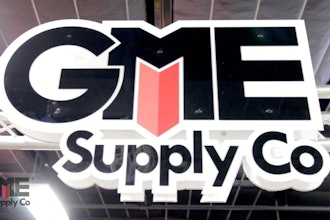WASHINGTON (AP) — Wholesalers likely boosted their stockpiles of autos, electronic equipment, clothing and other goods in September to keep up with rising sales, a trend that could support modest economic growth.
When companies build up their inventories, it usually signals that they expect more sales. And the extra factory production needed to increase stockpiles boosts economic output.
Analysts forecast that sales by distributors and other wholesale businesses rose 0.8 percent in September, according to a survey by FactSet. That follows a healthy 1 percent gain in August, the fastest in five months.
The Commerce Department will issue the report at 10:00 a.m. Eastern on Wednesday.
Rising wholesale sales are a good thing because they keep inventories from getting too high. If companies increase their stockpiles too much, that could force them to cut back on future orders.
Over the past two years, companies have rebuilt their inventories of goods after cutting them to the bone in the recession. That restocking is a big reason the manufacturing sector has been one of the strongest industries in the recovery.
Other reports suggest companies will keep adding to their inventories in the coming months, a good sign for future growth.
The Institute for Supply Management, a trade group of purchasing managers, said last week that manufacturers' inventories shrank after growing for two straight months. Manufacturers said their customers' inventories are also shrinking.
Both readings indicate that companies will have to order more goods as sales rise, rather than fill orders from inventories.
The government reported late last month that inventories grew at a much slower clip in the July-September period than the previous quarter. As a result, inventories subtracted more than a full percentage point from growth. The economy expanded 2.5 percent in the third quarter, the government estimated.
The weakness in inventories bodes well for growth in the October-December quarter, economists say. That's because the economy will likely expand at a roughly 2 percent pace in the final three months of the year, and lower inventories means manufacturers will likely have to raise output to meet that demand.
The economy is growing, but not fast enough to significantly reduce the unemployment rate, which dipped to 9 percent in October from 9.1 percent the previous month. Growth would have to accelerate to 4.5 percent for a full year to reduce unemployment by a full percentage point, economists say.
Consumers ramped up their spending in the July-September quarter, but economists worry that it isn't sustainable. Americans dipped into their savings to support the extra spending, while incomes were largely stagnant.
The economy needs to generate more jobs and higher incomes to fuel ongoing consumer spending gains.
Wholesale inventories are one of several categories of inventories the government tracks. The other two are manufacturing and retail stockpiles. Those categories will be included in a business inventories report issued later this month.


















